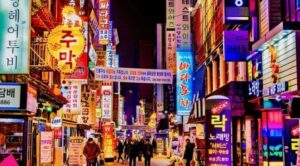Key Moments:
- Slovenia developed a regulated gambling environment based on the 1995 Gaming Act
- The Ministry of Finance and the Gaming Inspection Office oversee the sector and enforce compliance
- Casinos, sports betting, lotteries, and licensed online gambling serve both residents and visitors
Regulatory Structure and Oversight
Slovenia has established a structured approach to gambling regulations, anchored by the 1995 Gaming Act. This legislation aims to make gaming fair, transparent, and addresses issues such as problem gambling. Responsibility for oversight falls to the Ministry of Finance, while the Gaming Inspection Office is charged with enforcement, regular audits, and monitoring operators for compliance.
The licensing framework distinguishes between various segments, including land-based casinos, online gambling platforms, and sports betting. Each category features its own set of regulations to maintain sector integrity.
Responsible Gambling Initiatives
A central focus of Slovenian gambling regulation is the promotion of responsible gambling practices. Licensed operators are required to put in place measures such as self-exclusion programs and awareness campaigns targeting problem gambling. Collaboration between the government and non-profit organizations aims to educate the public on gambling-related risks and provide aid for individuals struggling with addiction.
Gambling Options Available
Slovenia’s gambling landscape caters to a wide audience, offering options that range from major casinos in urban centers to smaller venues in rural settings. The largest establishment, Casino Ljubljana, provides a variety of games, slot machines, and facilities for sports betting.
Online gambling is a significant part of the market, reflecting broader digital adoption. Operators seeking to provide online casinos, poker, or lotteries must undergo a formal licensing process to ensure player safety and compliance. Sports betting stands out as the most popular activity, driven by national enthusiasm for football, with this market generating notable revenue for both public and private entities.
Public Attitudes and Cultural Perspectives
Within Slovenia, gambling is mainly viewed as a form of entertainment rather than a means of financial gain. There is general awareness of gambling’s potential risks. Efforts by both governmental bodies and non-profit organizations emphasize responsible participation to minimize adverse consequences. Consumer protection and the promotion of healthy gambling habits remain key priorities.
Slovenian Licensing Requirements
Entities looking to offer gambling services legally must secure licenses suited to their operations. The application process requires prospective operators to submit detailed business plans, financial statements, personal identification, and strategies for promoting responsible gambling. Background checks form part of the vetting process to ensure operators have no criminal past.
Fees associated with licensing vary according to the type and scale of the operation. Licensed companies are required to submit regular financial reports to the authorities and maintain active self-exclusion programs and awareness efforts.
Summary
Slovenia’s regulated gambling environment aims to support economic growth and social well-being while prioritizing player safety and fairness. The market features a diverse range of opportunities for both locals and tourists, underscored by robust responsible gaming standards. As the sector continues to evolve, maintaining alignment with technological and societal developments is crucial for continued progress.
- Author


